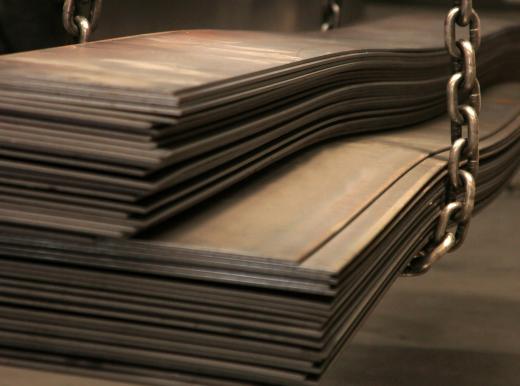A forming die is a manufacturing tool that presses materials into specific shapes, much like an industrial-size stencil. Forming dies are used in everything from creating sheet metal to pressing new government coins. There are a wide variety of die types that help form these products, including bending dies, blanking dies, broaching dies and more.
A forming die essentially is a formed metal piece at the end of a press. A press is a large pneumatic machine that applies pressure to material by forcefully pushing down upon it. When a forming die is fitted to the end of a press, it carves out the shape of the die onto the material. Dies traditionally were hand-carved but have come to be designed and cut by computers. Regardless of how they are created, dies are used in countless manufacturing industries.

One example of a forming die is one used in sheet metal production for automobiles. If a side panel is needed by a factory, a die is made to represent the size and shape of that panel. Thin, raw metal is laid under the die press, and the piece is punched out of the material. Forming dies also are used in more intricate work, such as coin production. The images present on the world's coinage is made by dies pressing into blank pieces of metal, often thousands of times a minute.

In order to create coins, side panels, aluminum cans and more, the metal forming die uses a variety of die types. Blanking and bending dies are two of the most common. The blanking die is used by most metalworking industries and is the first step in converting raw metal into its proper shape, usually as a rough draft of the finished product without any detail. A bending die performs its task by being shaped in a way that bends the metal once it is pressed, like with the contours of a door panel on a car.
A broaching die utilizes a series of saw teeth to remove material from within a piece of metal. A curling die is a complex tool used to create a curved surface, such as a door hinge. A shaving die normally is used as one of the last steps in the process, because it gently shaves off any rough edges from a metal product, like sandpaper on wood.
